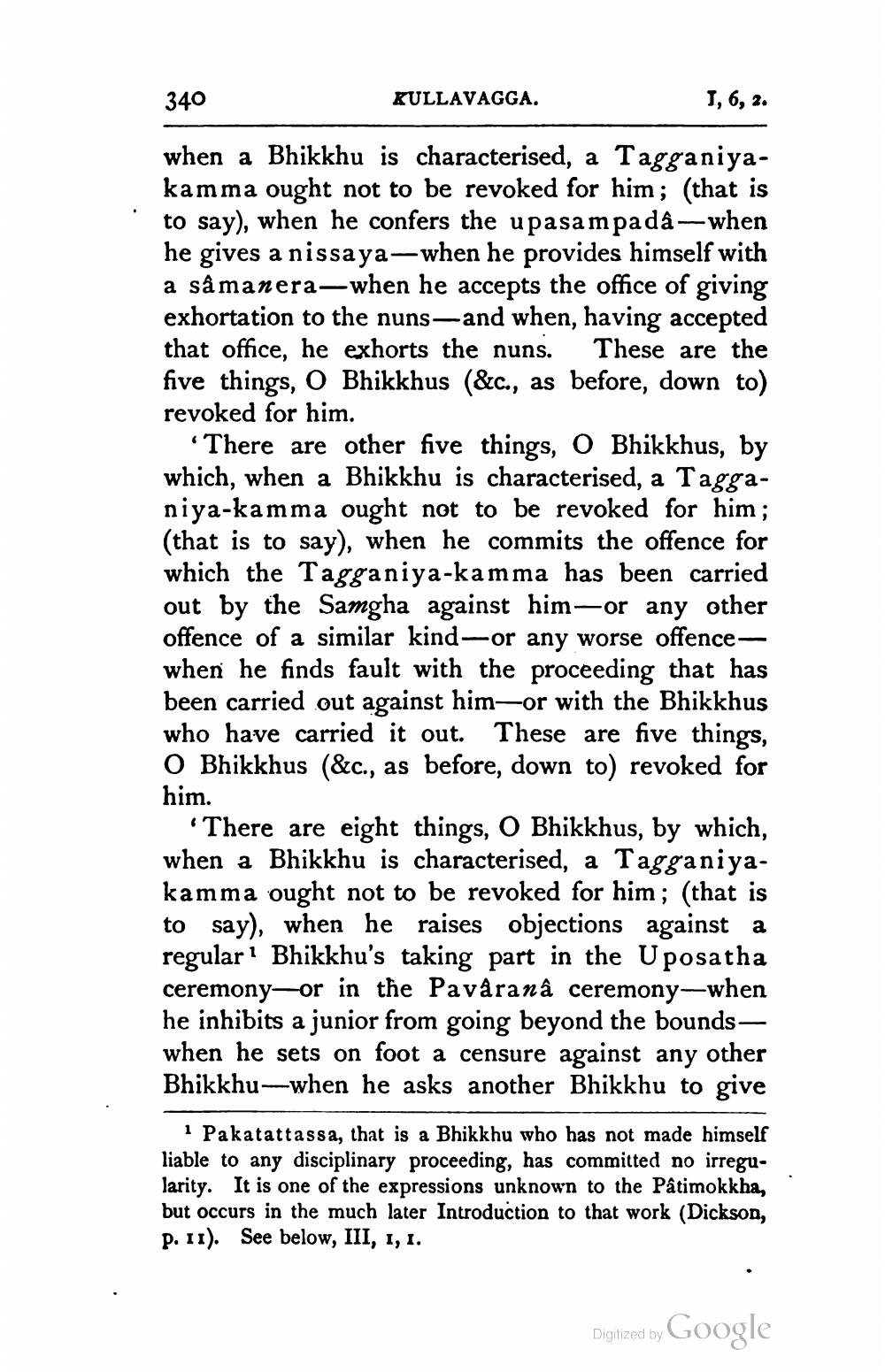________________
340
KULLAVAGGA.
T, 6, 2.
when a Bhikkhu is characterised, a Tagganiyakamma ought not to be revoked for him; (that is to say), when he confers the upasa mpadà -- when he gives a nissaya—when he provides himself with a så manera—when he accepts the office of giving exhortation to the nuns—and when, having accepted that office, he exhorts the nuns. These are the five things, O Bhikkhus (&c., as before, down to) revoked for him.
“There are other five things, O Bhikkhus, by which, when a Bhikkhu is characterised, a Tagganiya-kamma ought not to be revoked for him; (that is to say), when he commits the offence for which the Tagganiya-kamma has been carried out by the Samgha against him—or any other offence of a similar kind-or any worse offencewhen he finds fault with the proceeding that has been carried out against him—or with the Bhikkhus who have carried it out. These are five things, O Bhikkhus (&c., as before, down to) revoked for him.
"There are eight things, O Bhikkhus, by which, when a Bhikkhu is characterised, a Tagganiyakamma ought not to be revoked for him; (that is to say), when he raises objections against a regular' Bhikkhu's taking part in the Uposatha ceremony-or in the Pavaranâ ceremony-when he inhibits a junior from going beyond the bounds — when he sets on foot a censure against any other Bhikkhu—when he asks another Bhikkhu to give
1 Pakatattassa, that is a Bhikkhu who has not made himself liable to any disciplinary proceeding, has committed no irregu. larity. It is one of the expressions unknown to the Pâtimokkha, but occurs in the much later Introduction to that work (Dickson, p. 11). See below, III, 1, 1.
Digitized by
Digitized by Google




